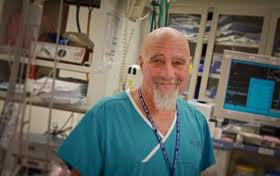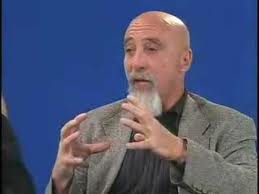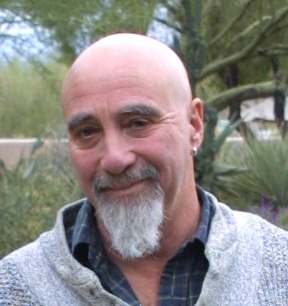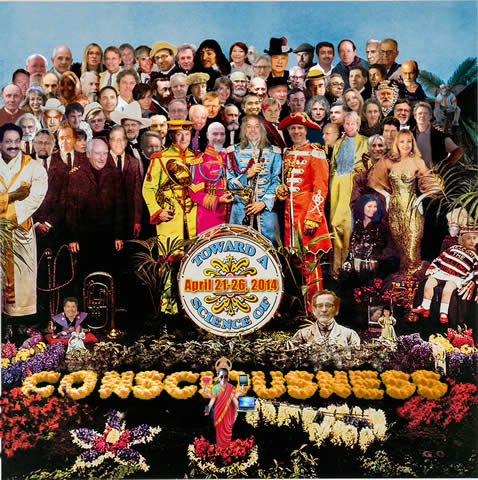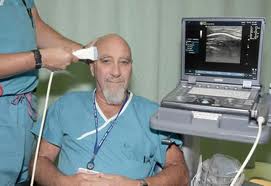|
Home » Research » Consciousness Research
Science of Consciousness - News & Research - Center for Consciousness Studies
Director, Center for Consciousness Studies
*Current Review (Science Direct) Consciousness in the universe: A review of the ‘Orch OR’ theory Stuart Hameroff, Roger Penrose Accepted August 5, 2013
Stuart Hameroff, M.D. joined the Department of Anesthesiology at the University of Arizona in 1975. Aside from his full-time clinical role, Dr. Hameroff’s academic and research interests have related to the study of consciousness, how the brain produces conscious experience, and how anesthetics erase it. He has written or edited 5 books, more than one hundred articles, and discussed the science of consciousness in numerous TV shows on BBC, Discover Channel, History Channel, PBS, OWN, and in the film “What the Bleep?” As Director of the Center for Consciousness Studies at the University of Arizona, Hameroff co-organizes (with philosopher David Chalmers) the conference series ‘Toward a Science of Consciousness’. Hameroff is co-developer, with British physicist Sir Roger Penrose, of the controversial Penrose-Hameroff ‘Orch OR’ theory of consciousness, based on quantum computations in microtubules.
2014 UPCOMING EVENTS Toward a Science of Consciousness April 21-26, 2014 www.consciousness.arizona.edu University of Arizona - Marriott University Park - Tucson
Stuart Hameroff - Co-Chair Toward a Science of Consciousness Director, Center for Consciousness Studies
2014 TSC Plenary Speakers Include Sir Roger Penrose, Daniel Dennett , Karl Deisseroth, Henry Markram, Christof Koch Stuart Hameroff, Anirban Bandyopadhyay, Sam Parnia, Giulio Tonon, George Mashour, John Searle, Petra Stoerig David Eagleman. David Chalmers, Rebecca Goldstein, Ned Block, Michael Graziano, Alison Gopnik, Susan Blackmore, and many more, Donald Hoffman, Bernard Baars. David Eageman, Julia Mossbridge, Mary Peterson, Russell Hurlbert, Max Tegmark, Ken Hayworth, Natasha Vita-More
Pre-Conference Workshop TSC 2014 Monday, April 21, 2014 9:00 am - 1:00 pm Microtubules and Quantum Biology Roger Penrose, Jack Tuszynski, Travis Craddock, Anirban Banyopadhyay, Stuart Hameroff quantum vibrations in microtubules support the controversial Orch OR theory, and provide a basis for EEG as ‘beat frequencies’ of intra-neuronal dynamics. See CCS website: www.consciousness.arizona.edu
Current Research Projects / Presentations Dr. Stuart Hameroff ‘s research projects are potentially open to resid ent involvement time permitting.
2014 - updating 2013 Society for Neuroscience, November 14, 2013 - Transcranial ultrasound (‘TUS’) an optimal non-invasive brain-machine interface via microtubules? Society for Neuroscience, November 14, 2013 SR Hameroff, JL Sanguinetti, C Duffield, U Raman, S Ghosh, S Parker, QD Amos, JJB Allen Good Vibrations - Transcranial Ultrasound Updating Good Vibrations’! Brain Ultrasound Improves Mood (Newswise, May 14, 2013) Dr. Stuart Hameroff and colleagues performed the first clinical trial of trancranial ultrasound (TUS) on mental states, finding improved mood after 15 seconds of sub-thermal 8 MHz ultrasound compared with placebo applied at the temporal skull. Transcranial ultrasound (TUS) effects on mental states: A pilot study, Brain Stimulation (May 6, 2012) Another project is being planned with UA professor of psychology John Allen and grad student Jay Sanguineti for mood, cognition and psychological and neurological disorders (including post-operative cognitive dysfunction). Microtubules within brain neurons are thought to resonate at megahertz frequencies, precisely where ultrasound acts. We hope to enhance mood, and treat various neurological disorders by stimulating brain microtubule dynamics through TUS. Slime Scene Investigation The first ever experiments on anesthetic mechanism were performed by Claude Bernard in the 19th century. He found that anesthetic gas exposure caused reversible cessation of protoplasmic streaming, purposeful movement in the unicellular giant amoeba slime mold. In recent years, the same slime mold amoeba Physarum polycephalum has been shown able, by extension of tendrils, to solve problems and escape mazes. The cognitive abilities of the slime mold depend on the same cytoskeletal structures responsible for purposeful streaming, inhibited by anesthetics. With Dr Quinlan Amos and Chris Duffield, the Anesthesiology Slime Lab is studying effects of anesthetics and ultrasound on cognitive functions and purposeful movements of Physarum polycephalum. Physarum uses microtubules to extend tendrils, like neurons extend axons and dendrites, and can be a good model for post-anesthetic cognitive dysfunction, Alzheimer’s disease, traumatic brain injury, PTSD, depression etc. Residents are encouraged to participate in research and are welcome in the Slime Lab time permitting. Don’t do the slime if you can’t spare the time. In Preparation Why anesthetic mechanism research has failed, and how to fix it
Research 2013 ‘Good Vibrations’! Brain Ultrasound Improves Mood, (Newswise May 14, 2013) Non-invasive brain stimulation techniques aimed at mental and neurological conditions include transcranial magnetic stimulation (TMS) for depression, and transcranial direct current (electrical) stimulation (tDCS), shown to improve memory. Transcranial ultrasound stimulation (TUS) has also shown promise. 2012 Transcranial ultrasound (TUS) effects on mental states: A pilot study, Brain Stimulation Hameroff S, Trakas M, Duffield C, Annabi E, Gerace MB, Boyle P, Lucas A, Amos Q, Buadu A, Badal JJ Received 21 November 2011; received in revised form 19 February 2012; accepted 6 May 2012. published online 30 May 2012. Brain Stimulation 6: 409-415 Abstract: http://dx.doi.org/10.1016/j.brs.2012.05.002 Additional Papers, Articles, Interviews Post-Anesthesia Dementia, Like Alzheimer's, Looks Micro-'Tubular ', Newswise, June 26, 2012 Transcranial ultrasound (TUS) effects on mental states: A pilot study, Brain Stimulation, May 30, 2012 Zinc Imbalance in Brains of Alzheimer’s Patients Points to New Therapies, Newswise,March 26, 2012 Tucson Scientists Claim Brain Memory Code Cracked, PLoS Computational Biology, March 8, 2012 Zinc, microtubules and Alzheimer's disease, PLoS One, March 23, 2012 Anesthetics, tubulin and post-operative cognitive dysfunction, PLoS One,June 25, 2012 Newly published, Ebner and Hameroff - 'Lateral Information Processing by Spiking Neurons: A Theoretical Model of the Neural Correlate of Consciousness' Computational Intelligence and Neuroscience,July 8, 2011 New paper on - Orch OR by Penrose and Hameroff 'Consciousness in the Universe' Journal of Cosmology, 2011, Vol. 14 QANSAS 2011, Agra, India, Quantum and Nanocomputing Systems, December 1-4, 2011 Visualizing molecular memory " Memory Bytes"-Molecular match for CaMKII, Phosphorylation Encoding of Microtubule Lattices, Journal of Integrative Neuroscience, Hameroff, Craddock and Tuszynski, September 20, 2010 VIDEO / BROADCASTS
2013 Is Human DNA the same as computer code? Huffington Post, Host Josh Zepps, Panel: J. Bohannon, S. Hameroff, Jason SIlva, Erez Lieberman HUFF POST LIVE 2/6/13 Can Images Unlock the Mystery of a Healing Brain? By Nancy Walsh, Staff Writer, MedPage Today 2/1/13 AZ PUBLIC MEDIA 2/5/13 NEW Arizona Illustrated - SCIENCE Tuesday - host Jane Poynter / Genetics Nothing Sans Consciousness - UA researcher says considering DNA alone misses 'life itself' 2012 Arizona Public Media/ Arizona Illustrated / PBS, NPR / April 10, 2012 Doctor Asks: What Is Consciousness? Producer Luis Carrion click for video “... the most interesting and important question there is” Toward a Science of Consciousness Tucson, 2012, Fractal Consciousness TEDx Future of Consciousness, Tucson 2012 2011 Through the Wormhole, Discovery Science Channel, Life After Death' (general website not connected to interview) Season 2, Episode 1, Part 2 aired: June 8, 2011, modr., Morgan Freeman June 8, 2011 (Tucson, AZ), University Medical Center physicians Stuart Hameroff (Department of Anesthesiology and Director of the Center for Consciousness Studies and Dr. Michael Lemole (Neurosurgery) appear on Discovery Channel Science television program Through the Wormhole with host and narrator, Morgan Freeman, featuring interviews and scenes filmed at UMC with numerous operating room staff. Morgan Freeman host and narrator highlights views of leading researchers and skeptics into the questions of near-death experiences,consciousness, quantum effects on biological research and the science behind what we know today.
Miracle Detectives, The Science of Consciousness, OWN, Feb 2011
Links Stuart Hameroff, MD / Faculty Page / Department of Anesthesiology Quantum Consciousness (under revision) Quantum-Mind.org / hameroff@u.arizona.edu Center for Consciousness Studies Toward a Science of Consciousness - The Tucson Conference 2014
Preview 2014 TSC Conference Program co-directed by Dr. Hameroff Consciousness Research Page / Hameroff/Department of Anesthesiology Interview Requests Please email and text messages to:
Abi Behar Montefiore Assistant Director, Center for Consciousness Studies Conference Manager, Toward a Science of Consciousness, Department of Anesthesiology center@u.arizona.edu
Center for CONSCIOUSNESS STUDIES 520-247-5785 (CCS cell and /text) 520-621-9317 (CCS)
520-626-6416 (CCS) University of Arizona, Department of Anesthesiology P.O Box 245114 - 1501 N Campbell Ave. 5th floor Su. 5301 Tucson, Arizona USA 85724-5114 Toward a Science of Consciousness (TSC) is presented by the Center for Consciousness Studies (CCS) at the University of Arizona, and alternates yearly between Tucson, Ariz. (even-numbered years, from 1998 including 1999 Quantum Mind in Flagstaff and 2003 Quantum Mind in Tucson and various locations around the world (odd-numbered years) in cooperation with partner organizations and institutions. Overseas TSC Conferences have been held in: 1995 Ischia, Italy; 1997, Elsinore, Denmark; 1999, Tokyo, Japan; 2001, Skovde, Sweden; 2003, Prague, Czech Republic; 2005, Copenhagen, Denmark; 2007 Vienna, Austria; 2007, Budapest, Hungary; 2009, Hong Kong, China; 2011, Stockholm, Sweden; 2013, Agra, India. The 2015 TSC will take place in Helsinki, Finland. The Center for Consciousness Studies (CCS) at the University of Arizona was established in 1997 by the Arizona Board of Regents. CCS is hosted by the Department of Anesthesiology at the University of Arizona College of Medicine. Dr. Hameroff is co-founder and director.
|
|
|||||||||||||


